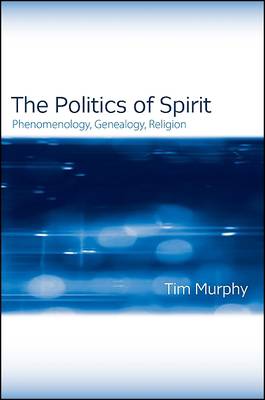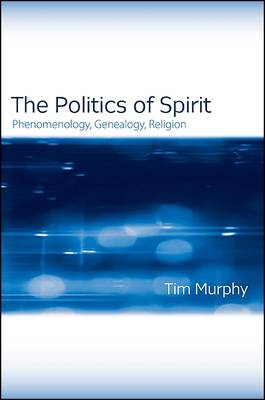
- Afhalen na 1 uur in een winkel met voorraad
- In januari gratis thuislevering in België
- Ruim aanbod met 7 miljoen producten
- Afhalen na 1 uur in een winkel met voorraad
- In januari gratis thuislevering in België
- Ruim aanbod met 7 miljoen producten
Omschrijving
A critical look at the development of the phenomenological approach to the study of religion, revealing its evaluative and metaphysical concepts.
A penetrating critique of the dominant approach to the study of religion, The Politics of Spirit explores the historical and philosophical scaffolding of the phenomenology of religion. Although this approach purports to give a value-free, neutral description of religious data, it actually imposes a set of metaphysical and evaluative concepts on that data. A very harmful ethnocentrism has resulted, which plagues the academic study of religion to this day. Analysis of the history, core texts, and discursive structure of phenomenology of religion reveals how this ethnocentrism is embedded within its assumptions. Of particular interest is the revelation of the extent to which Hegel's ideas-over those of Husserl-contributed to the tenets that became standard in the study of religion.
Tim Murphy argues that the poststructuralist concept of genealogy, as derived from Nietzsche, can both describe religion better than the phenomenological approach and avoid the political pitfalls of ethnocentrism by replacing its core categories with the categories of difference, contingency, and otherness. Ultimately, Murphy argues that postmodern genealogy should replace phenomenology as the paradigm for understanding both religion and the study of religion.
Specificaties
Betrokkenen
- Auteur(s):
- Uitgeverij:
Inhoud
- Aantal bladzijden:
- 405
- Taal:
- Engels
- Reeks:
Eigenschappen
- Productcode (EAN):
- 9781438432885
- Verschijningsdatum:
- 2/07/2011
- Uitvoering:
- Paperback
- Formaat:
- Trade paperback (VS)
- Afmetingen:
- 152 mm x 226 mm
- Gewicht:
- 544 g

Alleen bij Standaard Boekhandel
Beoordelingen
We publiceren alleen reviews die voldoen aan de voorwaarden voor reviews. Bekijk onze voorwaarden voor reviews.









